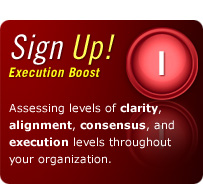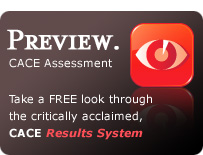Interpersonal Expertise Tip: Avoiding Unnecessary Conflict, Resolving Necessary Conflict
February 4th, 2010
Many of us have been raised reading fairy tales that often end with the heroes living “happily ever after” once they have overcome “the bad guys.” Contrary to the relationship myth of happily ever after, occasional friction in long-term relationships of all kinds (professional and personal) is often unavoidable, no matter how many interpersonal barriers (or “bad guys/ineffective habits”) are overcome. This conflict can be draining and overwhelming if not handled with skill and care. The good news is that if addressed well, interpersonal conflict can actually open the door to more effective and satisfying relations with others.
Because conflict in relationships is a given from time to time, it can be important to develop the ability to avoid unnecessary conflict while facing and resolving the necessary conflicts with others in our lives. This can be done in three phases: (1) identification of avoidable conflicts and minimization of such conflicts, (2) identification of unavoidable conflicts and genuine resolution of these conflicts, and (3) transformation of currently unavoidable conflicts into conflicts that can eventually become more avoidable in the future.
The ability to avoid unnecessary conflicts while resolving the necessary ones can be cultivated by practicing what we call the “Find Truth and Clarify Team-Building (FTC-TB)” approach to conflict resolution. Here are some ways people have been able to use principles related to this approach to transform conflict in effective and satisfying ways:
- Phase I: Cultivate peace of mind in the midst of conflict. Taking on conflict in productive, growth-oriented ways often requires a clear and calm mind. This can be a huge challenge, especially when we feel attacked by others. It can often be very helpful to excuse oneself in the midst of conflict to cultivate peace of mind before moving on to the next phase of this process. If we feel comfortable, we can tell the other parties what we are doing (making sure that we are clear on when we will be back so others do not feel abandoned). For example: “I want to resolve this as best I can, but need a minute to sort things out; I’ll be back in 15 minutes to talk more about this.” If we do not feel comfortable, we can also choose to excuse ourselves in another way (for example: “I want to handle this as soon as possible, but need 15 minutes for another task. I’ll be right back.). During that time period, we can work to cultivate peace of mind. Click here for more on how others have done so in effective ways.
- Phase II: Understand “the accusation” clearly and with genuine curiosity (rather than defensiveness) – then attempt to find some truth in the accusation. In many interpersonal conflicts, there is an “accusation” that starts the conflict off (for example, “You did not do a good job on this report,” or “What you did was not appropriate behavior.”). Our typical reaction to accusations is to defend against them – and sometimes counter-attack (for example: “My report was exactly what I was asked to you – you are the one who writes bad reports,” or “I was perfectly appropriate – you were the one acting in hurtful ways.”). Defensiveness can fuel the fire, often creating ongoing, draining conflict. Attempting to find some truth in the accusation, on the other hand, can often calm the flames and lay the foundation for interpersonal growth. For example, we can respond to the accusations above in ways similar to this (with genuine curiosity, if we have cultivated peace of mind first): “I’m interested to see what you mean about my report; can you show me specific areas where it was poor in you mind?” or “I’m always interested in improving my relationship skills, can we talk more about where you think I can improve?” This can be challenging but very productive. Once again, Phase I above can be critical here; it is much easier to find truth in accusations when we have cultivated a certain amount of peace of mind. It can also be helpful in this Phase to know that you will eventually be addressing Phase III below once Phase II is complete.
- Phase III: Clarify portions of the accusation that do not seem to fit – then problem-solve as a team. After finding some truth in an accusation, we can then clarify portions of the accusation that we do not find valid – without communicating as much defensiveness (there is less to defend against after finding some truth in an accusation first). This can then set the stage for a “team-building” experience, where all parties discuss how to move forward in more satisfying ways. For example, after hearing others out about what makes for a better report or more satisfying behavior, we can then clarify the portions of the accusation that we do not agree with in ways similar to this: “I hear how you want me to improve and appreciate that. I do feel as though much of my report (or much of my behavior) fits your definition of good most of the time in these ways . . . does that sound right to you?” In most cases, well-meaning others will be ready to affirm that our work and/or behavior is not always poor. We can then begin planning for how we can move forward together as a team, rather than how we can “get back” at the accuser in the future!
NOTE TO THOSE USING THE MISSION FULFILLMENT SYSTEM: You can move toward transforming conflict into team-building opportunities by adding a new Objective to your system by using the “Add New Item” link (for example, “Avoid unnecessary conflict and resolve necessary conflict in my life”). You can then develop a SMART Goal related to that new Objective by using the “Add Subitem” link to the far right of the new Objective (for example, “When feeling accused of something that makes me angry or hurt, ask for at least 15 minutes to perform a peace-of-mind exercise before finding some truth in the accusation.”).
FOR THOSE WHO ARE NOT ON THE MISSION FULFILLMENT SYSTEM: Click here to for more information and click here to sign up.
FINAL NOTE: If you were linked to this article by a video or email, please return to that link and proceed with any other instructions that you deem helpful. For more Execution Excellence and Interpersonal Expertise tips and tools visit our site at: www.excellenceuniversity.net
Article Filed under: 2. Interpersonal Expertise Tips



1 Comment Add your own
1. Lindsey | October 3rd, 2014 at 9:06 pm
These tips are so relevant in my life right now, and it amazes me how often I read this blog and find that I have, through my own personal experience and learning, come to find and utilize many of the tips. This post is an excellent example of that. To begin, I have always found that trying to tackle a problem while angry/upset/emotionally charged makes the problem so much worse. Instead of discussing the matter at hand, it often turns to fallacious thought, such as ad hominem, to attempt to “win” the argument or prove one’s side right. However, taking the time to clear one’s mind helps one come back to their baseline, assess the situation, and move into the resolution process easier. Secondly, I find that when emotionally charged, I often misinterpret accusations or conflict, further exacerbating the issue. Thus, looking at the conflict or accusation with an open mind and genuine curiosity helps to discern the true meaning of it, and move on to resolving it effectively. However, as the third phase mentions, it’s not helpful if one just goes “you’re right, I was wrong, I won’t do it again.” I think it’s important to understand what exactly was right, reinforce that, and then figure out what exactly was wrong or off. It’s something that needs to be done as a team, and it indeed can result in team-building. I find that I experience the least amount of stress, yet the most amount of conflict resolution, when the person I have a conflict with possesses these skills. Instead of passive aggressively drawing out the conflict for days, we can address it in as quickly as 20 minutes and move on. It saves a lot of heartache and stress for sure!
Trackback this post | Subscribe to comments RSS Feed
Leave a Comment
Some HTML allowed:
<a href="" title=""> <abbr title=""> <acronym title=""> <b> <blockquote cite=""> <cite> <code> <del datetime=""> <em> <i> <q cite=""> <s> <strike> <strong>